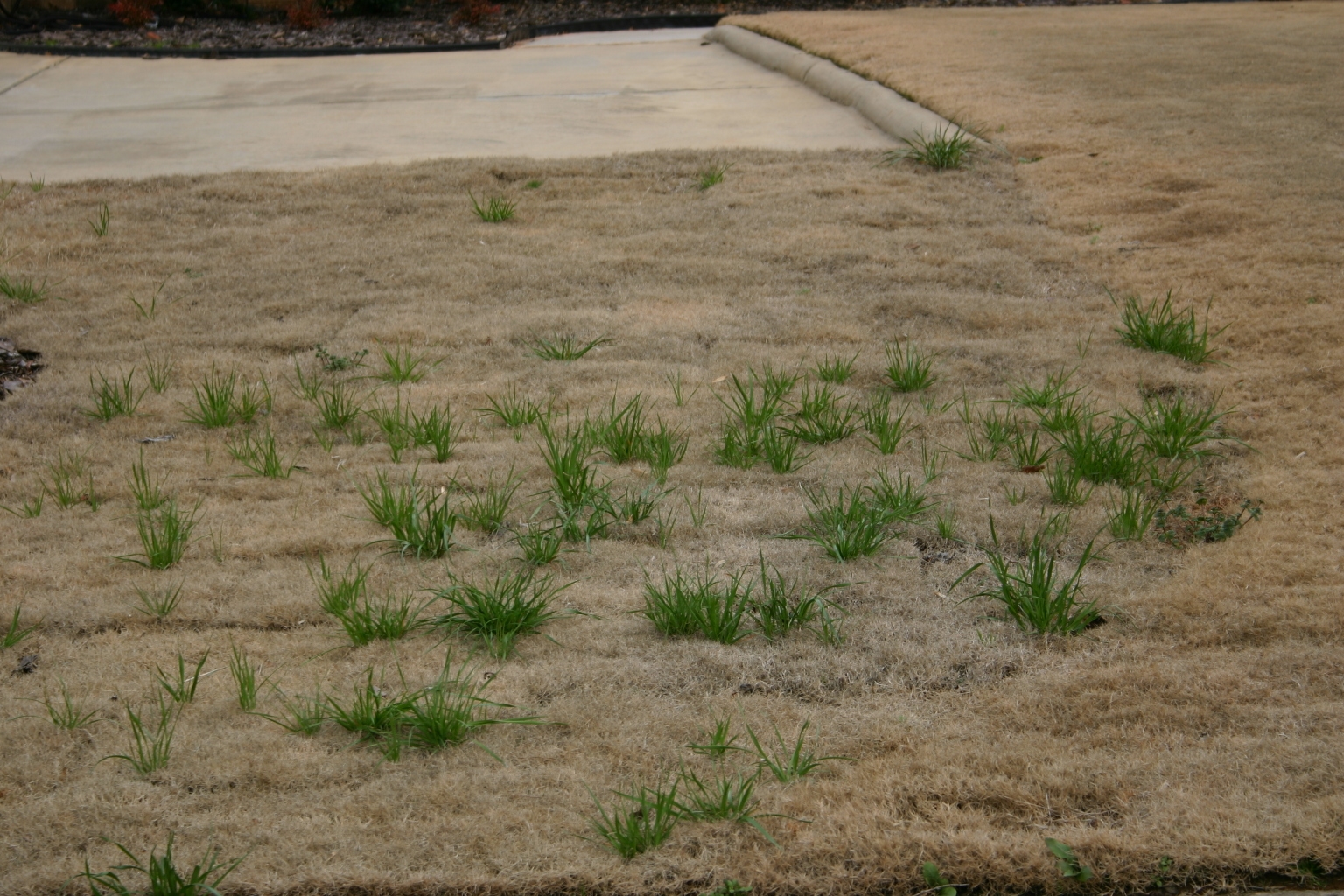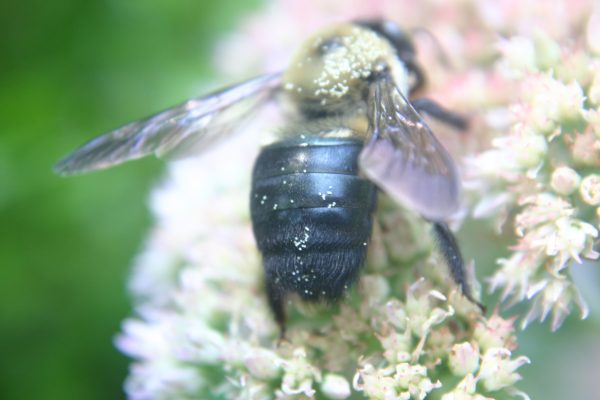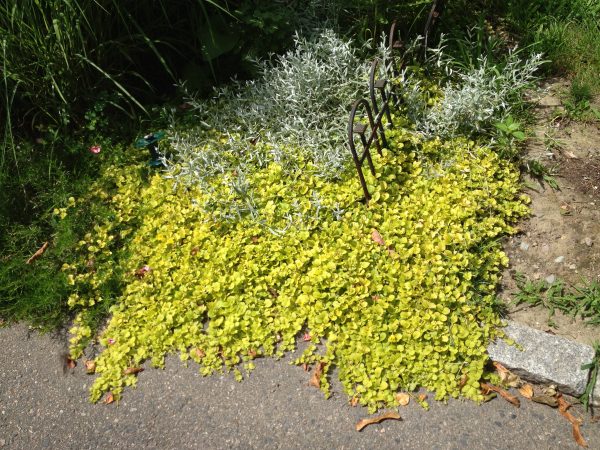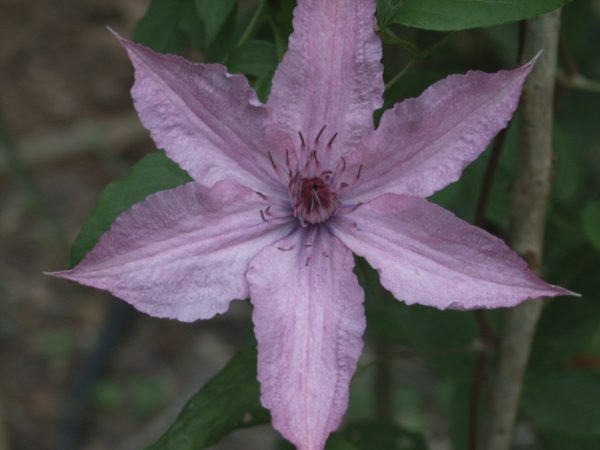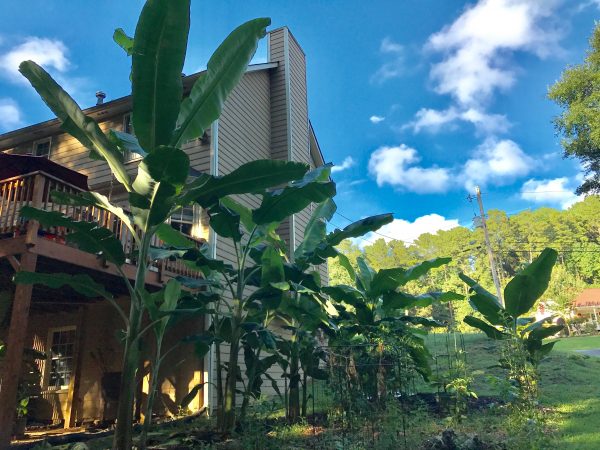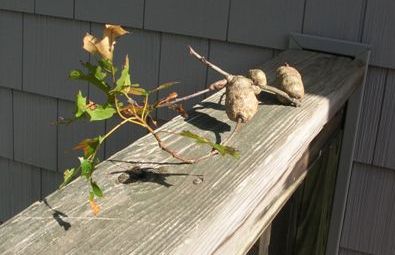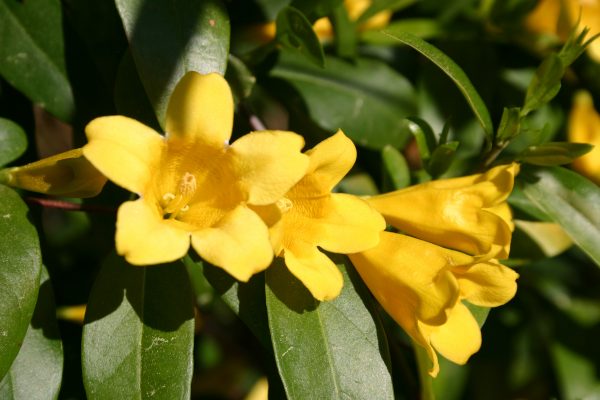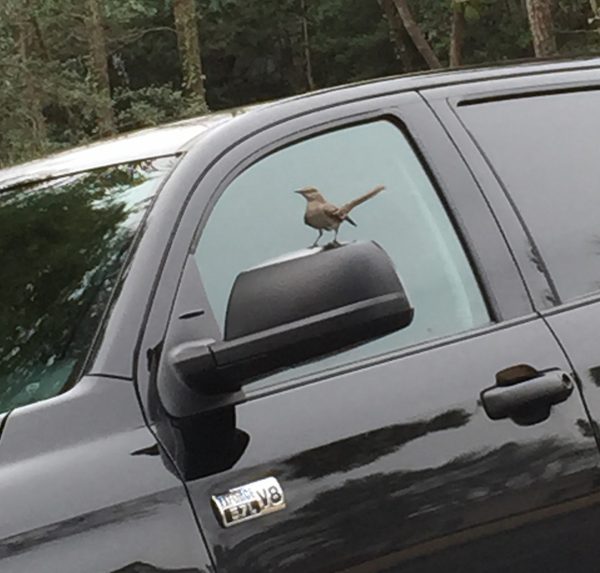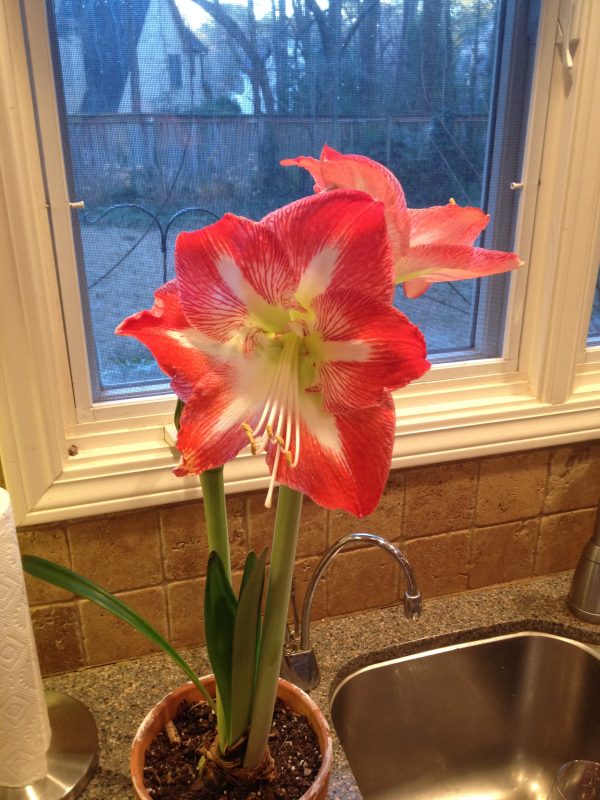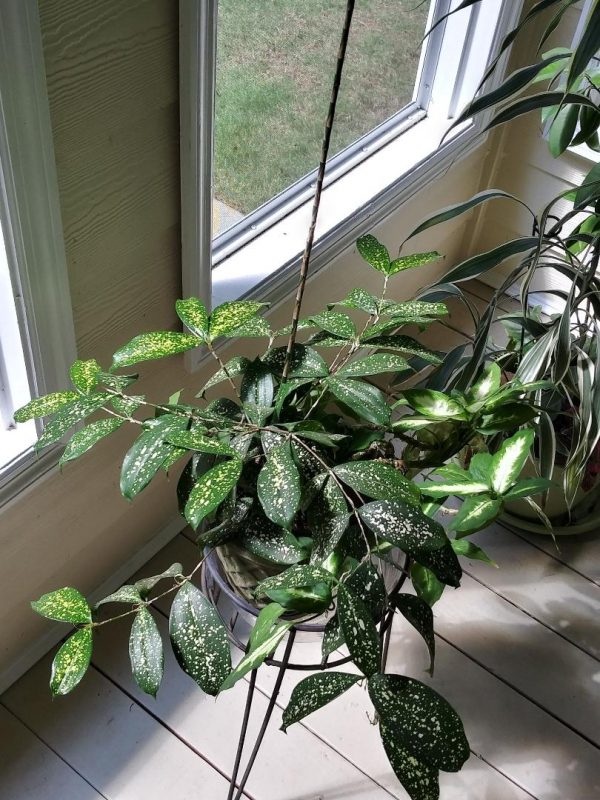Lawn Fertilizer – Using Beer
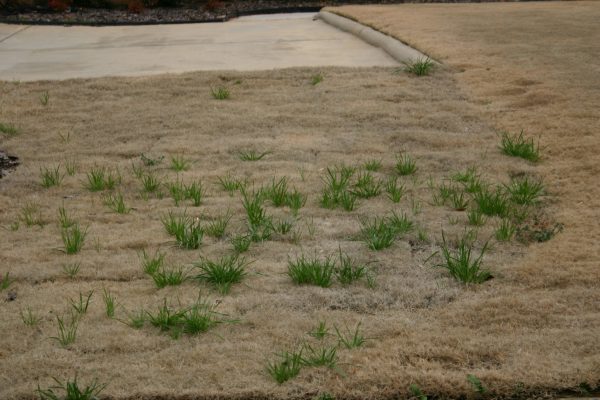
Q: A friend told me about a trick he uses to keep a beautiful green yard. He mixes and applies one part each of the following: ammonia, lemon-scented dish detergent, beer and Coke (not Pepsi!). Is this true? Will it work or is this guy just being a jokester?
A: He sounds like a jokester. Television hucksters touting lawn “formulas” made from household products come around like clockwork every spring. The presentation is enthusiastic but the recommendations contain only tiny nuggets of truth and effectiveness.
It is true that household ammonia contains a small amount of nitrogen that plants need – but it evaporates before becoming available to the plants it is sprayed on. It is true that detergents can make other chemicals spread and stick to the leaves of plants – but the proportion of detergent should be only a few drops per gallon. Otherwise, the detergent will burn the plant leaves like a herbicide would. It is true that soil micro-organisms consume carbohydrates – but they specialize in the complex carbohydrates found in plants, not the simple sugars and other carbohydrates found in soft drinks and beer.
Leave the jokes indoors – not on your landscape. The formula you’ve described WOULD be useful in one respect, though: it would make good hogwash!
Here’s a related newspaper article:
EXPERTS MUDDY ‘MASTER GARDENER’
By Dennis Cauchon
Mon., Aug. 23, 1999
USA Today
As one of the nation’s best-known gardeners, Jerry Baker is famous for his folksy ways, funny stories and home remedies.
Baker, the star of gardening videos and the Public Broadcasting System, advises people to douse their yards with special ”tonics” made from chewing tobacco, human urine, birth control pills, mouthwash, molasses, detergent and beer. ”Everything you need is in your kitchen and medicine cabinet,” declares Baker, who calls himself ”America’s Master Gardener.”
His grandfatherly style has made him one of PBS’s top three fund-raisers, bringing in millions of dollars to local PBS stations since 1995. He is back on the air this month for the summer fund-raising drive.
But while Baker is beloved by PBS contributors and station managers, he receives nearly universal condemnation from plant scientists, who say his advice ranges from the wacky to the downright dangerous. The academic experts are angry that PBS, a network known for distinguished science programs, continues to put Baker on the air.
”What he’s telling people to do is ridiculous,” says Larry Kuhns, professor of ornamental horticulture at Pennsylvania State University. ”For PBS to give him all this unwarranted credibility is extremely frustrating to those of us who’ve spent years doing research and looking at the evidence.”
In addition, state and federal agricultural agents are angry that he trademarked the term ”America’s Master Gardener” in 1994, causing widespread confusion with the U.S. Agriculture Department’s own master gardener program, which has provided rigorous scientific training to more than 100,000 lay people since 1971.
PBS’s vice president of fund-raising programs, Alan Foster, says PBS takes the content of its programs seriously and has not seen convincing evidence that Baker’s advice is harmful. ”Most of the criticism has come from people with vested interests, who are the traditional experts,” Foster says. He says Baker is a successful fund-raiser and his appearances illustrate the network’s diversity.
Baker says he doesn’t respond, point by point, to his critics: ”They do their thing and I do mine. I do it sincerely and I get hugs and kisses from people when I’m done.”
Jerry Baker, 68, began his career in the late 1950s as a Detroit undercover cop, investigating heroin and marijuana rings. But his love of gardening kept him busy maintaining the precinct house’s lawn and going undercover as a tree trimmer.
The Detroit Free Press did a story on him, and he soon began writing a gardening column for the newspaper. In the 1960s and 1970s, he appeared frequently on local TV and on national shows hosted by Mike Douglas, Dinah Shore, Johnny Carson and others. When The Tonight Show was based in New York, Carson asked him why the tips of his houseplants were black. Baker told Carson that a draft in his apartment was drying his plant’s leaves. Carson bet $1 that his luxury apartment was draft-free. After the show, the pair took a limo to Carson’s apartment and lit a match. Baker won the $1.
In 1971, Baker wrote the best-selling Plants Are Like People, the first of his 40 gardening books. He was Kmart’s gardening spokesman for 27 years. For the past 15 years, he’s had a national radio program. His Saturday morning show, syndicated by Westwood One, is now on 217 stations.
Baker and Roger Swain, host of PBS’s Victory Garden, are the only truly national figures in gardening.
Baker considers himself a performer: ”I entertain, then I educate. I like showing off.”
His career had quieted somewhat after his heyday in the 1960s and ’70s, but it was rejuvenated by his PBS deal and the entrepreneurship of his son, Jeff Baker, and son-in-law, Kim Gaisor, who started a mail-order business to sell garden products.
”Our goal is to turn Jerry Baker into the Betty Crocker of gardening. We want his name, his face and his down-home wisdom to be known to every gardener,” Gaisor says.
Jerry Baker had little interest in business when his son and son-in-law invested $550 in 1987 to start the company. It now employs 60 people in the Detroit suburb of Wixom. Jerry Baker is paid a fee for his PBS appearances, but he doesn’t own an interest in the company, which sells Jerry Baker Lawn Food, Jerry Baker Thatch Buster and other garden products.
In 1995, the company started licensing Jerry Baker videos to PBS, which makes the programs available for local stations to use for fund-raising.
Baker declines to say what his income is or how much he earns from the licensing arrangement with PBS.
”I never chased the buck. The buck chased me,” Baker says. He lives on a lake near Orlando, Fla., and maintains 7 immaculate acres himself, mowing the lawn in a crisscross pattern so that the grass roots never catch direct sunlight.
A PBS superstar
Jerry Baker was an instant sensation on PBS. In his first year, he raised $77,000 in three hours for KCPT-TV in Kansas City, a record that still stands. The station repeated the show four days later; he raised another $67,000.
”In Kansas City, nobody can touch Jerry as a fund-raiser,” says John Mertz, producer of the station’s membership drive. ”In fund-raising terms, he’s got legs. People don’t seem to tire of him.”
Last August, Jerry Baker did a live 10-hour marathon fund-raiser that was made available by satellite to all PBS stations. It was a huge success, and many stations rebroadcast the marathon in March and again this August.
”Jerry raised $112,000 in the marathon, which is phenomenal for us,” says Diane Bliss, a vice president at WTVS-TV in Detroit. The station repeated the marathon in March and raised another $176,000.
PBS does not release national figures on local fund-raising or how many PBS stations carry particular shows. But station executives rank Baker among the top three PBS fund-raisers of the last few years.
Baker’s critics agree that he is enormously entertaining. It’s the content of his TV appearances that disturbs them. A few local PBS stations have heeded pressure from horticulturists and dropped Baker, PBS spokesman Foster says. But most stations stick with him. Extension agents in the Ohio State University system petitioned WOSU-TV in Columbus to remove Baker’s show from the air because, they said, his advice was scientifically unsound and sometimes harmful. In a letter to the station’s general manager, the agents cited examples of bad advice, including improper and illegal use of herbicides and insecticides.
The extension agents say they got no response.
”A station affiliated with Ohio State should be using and airing good horticultural information, not the misinformation that Baker pours out,” says Jane Martin, an extension agent in Franklin County, home of Ohio State. ”Every time he’s on, we get flooded with calls asking for Jerry Baker recipes, and we have to say, ‘Well, that’s not such a good idea.’
”
WOSU’s response: ”At PBS, we present different things. Not everyone will agree with everything,” says Keri Allen, director of development.
Homemade potions
The scientific community screams loudest at Baker’s suggestions for homemade pesticides, such as his fondness for using a chewing tobacco-water mixture to kill bugs.
”He’s using the chewing tobacco for the nicotine, which is a lethal pesticide, far more dangerous than most of what you buy at the store,” says Doug Welsh, a horticulture professor at Texas A&M. ”And he’s killing the good bugs and the bad bugs. That’s not good gardening.”
Other examples cited by his critics:
* To kill suckers growing on trees, Baker recommends using ”any good weed killer” with dish soap, vinegar and gin. Although the last three ingredients are irrelevant, many herbicides, including the popular Roundup, could harm or even kill a tree, experts say.
* After pruning flowering trees, Baker recommends sealing the wounds with latex paint, antiseptic mouthwash and an insecticide such as Sevin or Dursban. Jim Chatfield, a landscape specialist at Ohio State, says the use of such insecticides without regard to the type of tree or insect is irresponsible, and to do so while flowers are in bloom and insects are pollinating is outrageous.
* The California Environmental Protection Agency wrote KVIE-TV, the PBS affiliate in Sacramento, a two-page letter in 1996 criticizing Baker’s advice on home-brewed pesticides. The agency said it was concerned not only with Baker’s formulas but also his advice to mix them in bottles and cans usually used for food. ”It is not only illegal under state and federal law to do this, it is also highly dangerous,” wrote Veda Federighi of the California EPA’s Department of Pesticide Regulation. She cited examples of children who died drinking pesticides in food containers. (In his videos, Baker tells viewers to clearly mark each container.)
Still, only a small portion of Baker’s advice is potentially harmful, his critics say; most of it is simply wrong-headed.
Baker recommends frequent shampooing of lawns and plants ”to improve photosynthesis” and ”help your yard win the never-ending battle against insects and disease.”
But Charles Krause, an Agriculture Department research scientist, says the benefits of shampooing plants elude him. ”I sure would like to see Jerry Baker’s evidence that it improves photosynthesis,” he says.
Like many with doctorate degrees, Chuck Powell, a technical adviser to the Commercial Rose Growers Association, is puzzled by some of Baker’s ingredients. Of a fertilizer that includes a tablespoon of bourbon, Powell says: ”It won’t hurt the plant, but it sounds like a waste of good whiskey to me.”
Baker says his advice has been tested by years of gardening by himself and his fans.
”The redwood trees grew just fine before we had garden centers and people with academic certificates,” he says. ”I can’t worry about what the competition says.”
The business
The average customer for the family’s mail-order business, American Master Products, is 55 or older and middle class. Customers ”like homey, middle-America stuff,” says Gaisor, Baker’s son-in-law, who designs the direct-mail campaigns. The company sends out 20 million pieces of mail a year from a mailing list that includes PBS contributors who get Baker merchandise in exchange for making donations.
But regulators are not among the company’s fans. The company was told that it is illegal to sell the homemade tonics that Jerry Baker recommends on TV for the same reason his critics want him removed from PBS: a lack of scientific proof that the tonics are either safe or effective. His weed killer — ”Only Available Through Jerry Baker” — is, in fact, a common herbicide called trimec. Rather than the mix of beer, ammonia, baby shampoo or molasses recommended on TV as an ”all-season green up tonic,” his fertilizers contain the typical blends of nitrogen, phosphates and potash found at every garden center.
The company’s top-selling item is Jerry Baker Dog & Cat Repellent — ”my unique formula,” as his catalog describes it. Actually, it’s methyl nonyl ketone, the same ingredient found in other dog repellents.
”There’s nothing he’s got registered to sell that hasn’t been around for many, many years,” says Jim Burnett Jr., deputy pesticide administrator for North Carolina. The only difference is price — about one-third more than you’d pay at Wal-Mart.
In January, North Carolina fertilizer regulator Susan Baker told the company to tone down claims made on its fertilizer packaging. The company complied. But she says some of its advertising claims still appear to go over the line. ”Many companies are selling the same product, and they’re looking for an edge,” she says.
The licensing agreement with PBS expires this year on five Jerry Baker videos and in 2002 on another four. The family company is in a strong negotiating position. The company has a web site (www.jerrybaker.com) and 150,000 subscribers to its $20-a- year newsletter.
”The boys have done a great job expanding what I started,” Baker says. ”I’m very proud.”


